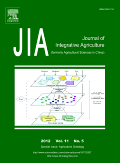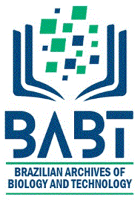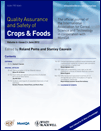
Chiang Mai Journal of Science
Scope & Guideline
Unveiling Pioneering Research from Chiang Mai
Introduction
Aims and Scopes
- Materials Science and Engineering:
Research in this area includes the synthesis, characterization, and application of novel materials, such as nanomaterials and composites, aimed at enhancing performance in various applications, including electronics, catalysis, and environmental remediation. - Environmental Science and Ecology:
The journal publishes studies addressing ecological dynamics, biodiversity conservation, and environmental impacts, particularly in the Southeast Asian context. Research often involves field studies, laboratory analyses, and modeling approaches. - Agricultural Science and Biotechnology:
This scope covers advancements in crop management, pest control, and the development of biotechnological applications for enhancing agricultural productivity, including the study of plant-microbe interactions and genetic diversity. - Biochemistry and Molecular Biology:
Research in this core area focuses on biochemical pathways, enzyme activities, and molecular interactions, often utilizing techniques such as transcriptomic and proteomic analyses to understand biological processes. - Food Science and Nutrition:
The journal explores food safety, quality, and nutritional aspects of various food products, including the development of functional foods, preservation techniques, and the study of food-derived bioactive compounds. - Renewable Energy and Sustainable Technologies:
Research in this area is dedicated to the development and optimization of technologies for sustainable energy production, including biofuels, solar energy, and waste management solutions.
Trending and Emerging
- Nanotechnology and Nanomaterials:
There is a growing trend in research focused on the synthesis and application of nanomaterials, particularly in areas such as catalysis, environmental remediation, and biomedicine, indicating a strong interest in harnessing nanotechnology for innovative solutions. - Climate Change and Environmental Impact Studies:
A significant increase in studies addressing the effects of climate change on ecosystems, agriculture, and biodiversity reflects a global emphasis on understanding and mitigating environmental impacts. - Health and Nutritional Biochemistry:
Research exploring the biochemical basis of health and nutrition, including studies on bioactive compounds in food and their health effects, has gained traction, aligning with global health trends and dietary concerns. - Smart Agriculture and Sustainable Practices:
Emerging research on smart agriculture technologies, including precision farming and the use of biotechnology for crop improvement, is trending, reflecting a shift towards more sustainable and efficient agricultural practices. - Bioremediation and Waste Management Technologies:
There is a notable increase in research focused on bioremediation techniques and sustainable waste management solutions, showcasing a commitment to environmental sustainability and pollution control.
Declining or Waning
- Traditional Medicinal Plants:
Research centered on the pharmacological properties and traditional uses of medicinal plants has seen a reduction in recent publications, possibly due to an increased focus on modern biotechnological approaches and synthetic alternatives. - Purely Theoretical Studies:
There has been a noticeable decrease in the publication of purely theoretical papers that do not incorporate experimental validation or practical applications, indicating a shift towards more applied research. - Conventional Agricultural Practices:
Research focusing solely on traditional agricultural methods without incorporating modern techniques or biotechnological advancements is becoming less frequent, as the emphasis shifts towards sustainable and innovative agricultural solutions.
Similar Journals

Ovidius University Annals of Chemistry
Unlocking Knowledge in Chemistry and Engineering.Ovidius University Annals of Chemistry is a prominent open-access journal dedicated to the field of chemistry and chemical engineering, published by OVIDIUS UNIV PRESS since 2012. With its ISSN 1583-2430 and E-ISSN 2286-038X, this journal seeks to foster innovative research and disseminate knowledge across diverse chemical disciplines. Situated in the vibrant academic setting of Ovidius University in Constanta, Romania, this journal receives contributions from a global pool of researchers, enhancing its relevance in the international scientific community. The open-access format ensures that all published articles are freely available, promoting a wider reach and impact of the research dissemination. As a valued resource for academics, industry professionals, and students alike, the Ovidius University Annals of Chemistry plays a crucial role in advancing the understanding of chemical sciences and engineering practices.

Advanced Science
Bridging Disciplines, Advancing ScienceAdvanced Science, published by Wiley, stands as a premier open-access journal since 2014, dedicated to fostering innovative research and insights across multiple disciplines including Biochemistry, Genetics and Molecular Biology, Chemical Engineering, Engineering, Materials Science, Medicine, and Physics and Astronomy. Based in Germany, this journal has quickly established itself in the academic community, receiving high recognition with a Q1 ranking in its respective categories as of 2023. With its impressive Scopus rankings, including #1 in Biochemistry, Genetics and Molecular Biology and #3 in General Engineering, Advanced Science plays a pivotal role in disseminating groundbreaking scientific knowledge to researchers, professionals, and students alike. By embracing an open access model, it ensures that high-quality research is readily available to a global audience, thus facilitating advancements in science and engineering fields.

SPANISH JOURNAL OF AGRICULTURAL RESEARCH
Exploring Solutions for a Greener TomorrowThe Spanish Journal of Agricultural Research (ISSN: 1695-971X, E-ISSN: 2171-9292), published by the prestigious Consejo Superior Investigaciones Cientificas (CSIC), serves as a vital resource for those engaged in the fields of agronomy and crop science. Established as an Open Access journal since 2003, it aims to foster the dissemination of innovative research and practical applications related to agricultural practices and sustainability. With its Q3 category in Agronomy and Crop Science and a Scopus ranking of #224 out of 406, the journal provides an accessible platform for scholars to share valuable findings that enhance agricultural productivity and environmental stewardship. Covering research from 2006 to 2024, this journal continues to be instrumental for researchers, professionals, and students eager to remain at the forefront of agricultural science advancements.

AGRONOMIA MESOAMERICANA
Inspiring change through cutting-edge agricultural research.AGRONOMIA MESOAMERICANA is a distinguished open-access journal published by UNIV COSTA RICA, dedicated to advancing knowledge in the fields of agronomy, crop science, food science, and soil science. Since its inception in 1990, the journal has provided a platform for researchers and professionals to disseminate their findings, contributing significantly to the agricultural sciences. With an E-ISSN of 2215-3608, it operates from Costa Rica, specifically from the Centro Investigaciones Agronómicas, situated in San José. Despite its current classification in the Q4 quartile for 2023 in the respective fields, it aims to stimulate academic discourse and inspire innovative solutions to pressing agricultural challenges. The journal attracts a diverse audience and encourages submissions that focus on sustainable practices, food security, and environmental stewardship, making it an essential resource for researchers, professionals, and students alike seeking to enrich their understanding and share crucial insights in the agronomy landscape. Open access ensures that all published research is freely available, fostering collaboration and knowledge exchange worldwide.

AGROCHIMICA
Pioneering research at the intersection of agriculture and science.AGROCHIMICA is an eminent journal published by PISA UNIV PRESS, dedicated to advancing the fields of Agronomy, Crop Science, Food Science, and Soil Science. With a rich history dating back to its inception in 1973, this journal has evolved through various phases of publication, illustrating its commitment to delivering quality research over several decades. Although currently categorized in the Q4 quartile across its respective disciplines, AGROCHIMICA provides a platform for foundational and innovative studies that contribute to knowledge in agricultural practices and sustainable food systems. While the journal is not open access, it remains a valuable resource for researchers, professionals, and students interested in Italy's and the global agricultural landscape, fostering a greater understanding of the complexities within these interconnected fields. The ISSN associated with this journal is 0002-1857, and it is published from Pisa, Italy, addressing the evolving challenges in agriculture with a spotlight on rigorous scientific inquiry.

Journal of Integrative Agriculture
Championing Integrative Strategies for Ecological ProgressJournal of Integrative Agriculture, published by Elsevier Science Ltd, stands as a leading platform for innovative research at the intersection of agricultural sciences. With a significant focus on integrative approaches, this journal has established itself within the academic community, reflecting its excellence through impressive Impact Factor rankings and a consistent Q1 category status in multiple fields, including Agronomy, Animal Science, and Ecology. The journal spans a wide range of topics, making it a critical resource for exploring advancements in Biochemistry, Food Science, and Plant Science. With its diverse Scopus rankings—from Rank #3 in Food Animals to Rank #14 in Animal Science—it serves as a vital repository for cutting-edge research that influences both scientific inquiry and practical applications in the agricultural domain. Operating from China and accessible through open access options, the Journal of Integrative Agriculture aims to foster collaborative research and knowledge exchange among scientists, professionals, and students worldwide, supporting the growth and sustainability of agricultural practices.

BRAZILIAN ARCHIVES OF BIOLOGY AND TECHNOLOGY
Advancing multidisciplinary research in biology and technology.BRAZILIAN ARCHIVES OF BIOLOGY AND TECHNOLOGY is a distinguished peer-reviewed journal that has become an essential resource in the field of multidisciplinary research since its inception in 1998. Published by the Instituto de Tecnologia do Paraná, the journal has successfully transitioned to an Open Access model since 2001, promoting widespread dissemination of knowledge across global research communities. With an impressive Q2 ranking and a Scopus percentile of 66th in the discipline, it ranks #58 out of 171 in its category, solidifying its influence and relevance in advancing scientific dialogue. The journal embraces diverse topics within biology and technology, encouraging interdisciplinary collaboration and innovation. Scholars, professionals, and students will find an invaluable platform for sharing groundbreaking research, emerging ideas, and critical reviews in a vibrant academic environment. For more information, please visit our website.

Quality Assurance and Safety of Crops & Foods
Advancing agricultural safety and food quality.Quality Assurance and Safety of Crops & Foods is a leading peer-reviewed journal, published by CODON PUBLICATIONS, dedicated to advancing the fields of Agronomy and Crop Science and Food Science. Since its inception in 2009, this journal has established itself as a crucial platform for researchers, professionals, and students, focusing on the vital intersection of agricultural safety and food quality. With a commendable impact factor and a current Scopus ranking placing it in the top quartiles of its field (Q2 in 2023), it serves as an essential resource for those committed to ensuring the safety and quality of global food supplies. The journal provides open access options to enhance the dissemination and accessibility of research findings, thus fostering collaborative efforts to tackle contemporary challenges in food production and safety. By showcasing innovative methodologies and cutting-edge research, Quality Assurance and Safety of Crops & Foods not only contributes to scientific discourse but also plays a pivotal role in informing policy and practice in sustainable agricultural practices.

KSU Tarim ve Doga Dergisi-KSU Journal of Agriculture and Nature
Exploring innovative research at the intersection of agriculture and ecology.KSU Tarim ve Doga Dergisi - KSU Journal of Agriculture and Nature is an esteemed academic journal published by KAHRAMANMARAS SUTCU IMAM UNIV REKTORLUGU, dedicated to advancing knowledge in the fields of agriculture, environmental science, and natural resources. With its commitment to open access, the journal ensures that the latest research findings are readily available to a global audience, fostering collaboration and innovation among researchers, professionals, and students. Although specific metrics such as H-index and Scopus ranking are not provided, the journal aims to cultivate a rigorous platform for the dissemination of high-quality research that addresses current challenges and trends in agriculture and nature conservation. Positioned in the heart of Kahramanmaras, Turkiye, this journal not only features empirical studies and reviews but also supports interdisciplinary approaches that contribute to sustainable development and ecological awareness. Researchers and practitioners in the field will find a valuable resource in this journal, as it seeks to inspire new ideas and practical solutions for the critical issues facing our environment today.

Journal of Chemistry and Technologies
Unveiling Breakthroughs in Chemistry and Engineering.The Journal of Chemistry and Technologies, published by OLES HONCHAR DNIPROPETROVSK NATIONAL UNIVERSITY, is an open access journal dedicated to advancing knowledge in the broad fields of chemistry and chemical engineering since its inception in 2013. With ISSN 2663-2934 and E-ISSN 2663-2942, this journal provides a vital platform for researchers and professionals, particularly in Ukraine and beyond, to share innovative research findings and contemporary technological advancements. Currently ranked in the Q4 quartile in both Chemical Engineering and General Chemistry for 2023, it serves as an enriching resource for those interested in emerging trends and interdisciplinary studies within these domains. The journal adheres to high academic standards while fostering collaboration in the scientific community by offering open access articles that ensure visibility and accessibility to a global audience. As an important part of the academic landscape, the Journal of Chemistry and Technologies aims to inspire future research and development, paving the way for new discoveries and applications in chemistry-related fields.